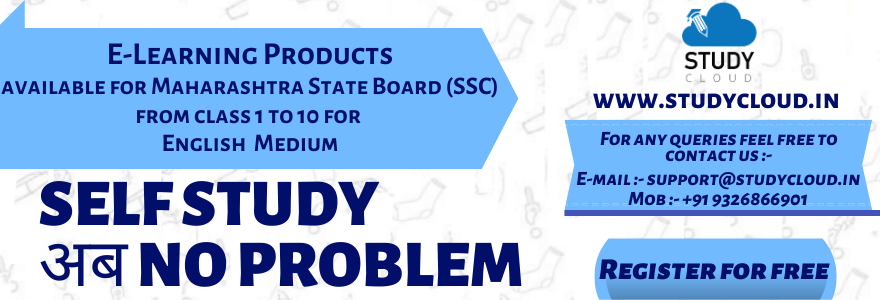We have sent password reset instructions and OTP. Please check your inbox
Don't have an account? Sign Up with us

Enter the below information to Reset Password
Successfully OTP Sent

Enter the below information to Reset Password
Please Enter OTP
Successfully OTP Sent
We have sent password reset instructions and OTP. Please check your inbox
Please Enter OTP
Successfully OTP Sent
We have sent password reset instructions and OTP. Please check your inbox
Please enter your email address below and we will send you instructions for setting a new password.

Incase you have already completed your registration process please enter your mobile number here to activate your account:

What is known as an Economic Activity?

Author Name
@Krish Shah
 Published on
June 8th 2020
Published on
June 8th 2020
What is known as an Economic Activity?
Introduction
Actions that involve production, distribution and consumption of goods and services at all levels within a society are called economic activity. For example, a worker working in a factory. Thus, economic activities facilitate earning a livelihood. There are three types of economic activities which explained along with its features in this article.
Business
Business represents organised efforts by an individual or group of individuals. It is a systematic attempt by business persons to produce goods and services and sell them in the market, to reap the reward by way of profit. It satisfies multiple ad complex needs of society.
Features
- Economic Activity - Business is an economic activity as it is undertaken to earn money or livelihood. It is not because of love, affection, feelings, sentiment, etc.
- Two Parties - Every business transactions involves an exchange. Minimum two parties are required for exchange i.e. the seller and the buyer. A business transaction is a result of an agreement between the buyer and the seller which may be oral or written.
- Profit Motive - The basic purpose of business is to earn the profit from its activities. Businessmen try to maximize profits either by increasing the volume of sales or reducing its costs. It is the spine of business which keeps the business going on in the long term. The amount of profit may differ from business to business.
- Production of Goods and Services - Before exchanging the goods and services, they should be produced by business enterprises. Goods are either manufactured or produced from the supplier, to sell it further to the consumers for profit.
- Exchange of Goods and Services - Business involves the transfer of goods and services directly or indirectly with money or money's worth. Monetary exchange is the exchange with money eg buying a notebook for cash. On the other hand in case of Barter Exchange goods and services are exchanged for some other goods and services example wheat in exchange for rice.
- Dealings in Goods and Services - Every type of business transaction is concerned with either goods or services. In the absence of goods and services business cannot take place. These goods may be consumer goods or capital goods. However, services created for business purpose are intangible which are essential for doing the business eg transportation, banking, insurance, etc.
- Continuity in Dealings - Every business requires regularity in transactions. One single transaction does not constitute business eg if a person sells his motor car and earns profit then it will not be considered as business activity.
- Uncertain Returns - In business, the returns are never predictable or guaranteed. A businessman may earn a profit or suffer a loss.
- Element of Risk - Risk is the key element of every business which is concerned with exposure to loss. It is due to some unfavourable or undesirable event. Every business will have some of the other risks. The intensity of risk can be minimised but can't be avoided. Certain factors are beyond the control of businessmen like changes in consumer tastes, likes-dislikes, fashions, changes in the methods of production, fire, theft, natural calamities, etc. No business is free from all the above factors.
- Customer Satisfaction – Customer Satisfaction is the ultimate aim of all economic activities and business is not an exception to it. The modern business believes in satisfying the customers by providing quality products and services at a reasonable price. The purpose of the business is to create and retain customers.
Profession
Profession is that part of economic activities under which a person uses his educational knowledge and special skill to render services for earning some income example Doctor, Lawyer, Chartered Accountant, etc.
Features
- Aim – Every profession is practised for earning money. Also, they render services to their clients and solve their problems.
- Qualification – A profession can be practised only after acquiring the required qualification. Each profession has a certain set of body of knowledge. This knowledge has to be acquired only by systematic and formal training. One cannot practice a profession unless this knowledge is acquired.
- Financial Returns – Professionals get fees in exchange for their services. Income received by professional is not fixed. Professionals can be employed in an organisation or self-employed. A working Chartered Accountant gets salary but those who practice privately i.e. self-employed get fees.
- Capital – Profession can be practised independently or professionals can work under someone. Independent practising professional requires huge capital for setting his practice.
- Registration and Membership – Some professions have a council which regulates the activities of professionals. These professionals have to register them with their respective council and get the certificate of practice example Bar Council of India for lawyers, ICAI for Chartered Accountant, Indian Medical Association for doctors, etc. The code of conduct mentioned by their respective councils must be strictly followed by every professional. Every practising professional has to acquire membership from the respective council.
- Non-transferability – Profession cannot be transferred to another person on the will of professional. For example, a doctor cannot transfer his medical practice to his son or daughter has not completed concerning medical education.
- Nature of work – Professionals charge fees in exchange of expert services example an architect designs the layout of office for a fee.
Employment
Features
- Aim – The main aim is to earn money for meeting the needs of the employees and employers.
- Qualifications – Each job requires some qualification. The job can be skilled or unskilled. For a skilled job, some specific qualifications are required example job of a nurse. But no specific qualification for the unskilled job is necessary example office boy.
- Monetary Returns – Wages or salaries is given as a financial return to an employee after completion of work. Wages are decided in advance before the appointment. Wages are paid daily or weekly. Salary is paid monthly. Along with salary other benefits like bonus, quarters to stay, subsidized food in the canteen, etc. also can be given to employees.
- Capital – No capital is required for employment because the employer provides everything to the employee for completing the job.
- Registration – No registration is required. Every employee has to follow the rules and regulations mentioned in the terms and conditions of an employment contract.
- Non-transferability – Employment cannot be transferred from one person to another example if a teacher retires, then he cannot transfer his job to his son or daughter.
- Nature of work – Every employee is expected to complete the work which is given to him. The nature of the job decides the nature of work.
-

sawantsahil2206@gmal.com 3 years, 6 months
👍👍👍
-

sawantsahil2206@gmal.com 3 years, 6 months
👍👍👍
-

nilamshukla2@gmail.com 3 years, 7 months
👍🏻👍🏻🙏🏻🙏🏻👌👌🙂🙂



User Already Exists
A user with email address you entered already exists with us ! Try to sign in.